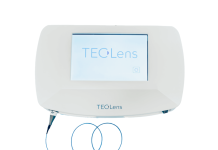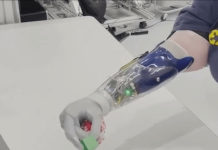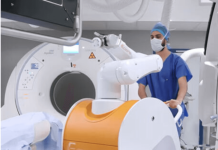AiM Medical Robotics closed a Series A financing round worth proceeds of $8.1 million.
IQ Capital and 1540 Ventures led the round, which also had participation from new and returning strategic investors.
The Worcester, Massachusetts-based company develops surgical robotic technology designed to enable surgeons to perform precise neurosurgical procedures directly within an MRI. It addresses intraoperative shift and eliminates the need to move patients between operating rooms and imaging suites.
Related: RDS raises €14m to bolster market penetration of patient monitoring wearable
AiM leverages real-time intraoperative MRI coupled with robotic guidance in its neurosurgery system. It aims to ensure the precise placement of neurostimulation leads for Parkinson’s disease patients. The platform also extends to a range of cranial procedures like biopsy, tumor ablation and targeted intracranial delivery of novel therapeutics.
The company says its integration enables faster, safer and more accurate procedures while reducing patient risk and healthcare costs.
AiM plans to use its latest funds to support its first-in-human clinical study, expand strategic partnerships and accelerate product development and regulatory milestones. To date, the company has raised more than $11.3 million in investment, adding to significant federal grant support.
The company’s first-in-human trials evaluate deep brain stimulation (DBS) implantation under intraoperative image-based guidance for Parkinson’s disease patients. Last year, it partnered with Brigham and Women’s Hospital (BWH) to validate its robot for DBS. It also partnered with Synaptive Medical, maker of robotic exoscope technology.
“This investment marks the beginning of the next chapter for AiM as we prepare to bring our transformative technology to patients,” said Dr. Gregory Fischer, co-founder and CEO of AiM Medical Robotics, Inc. “With first patient enrollment on the horizon, we are eager to demonstrate the profound clinical and commercial impact of AiM’s platform – not only in Parkinson’s disease but across a broad spectrum of cranial procedures including tumor biopsy, cancer and epilepsy ablation, and targeted intracranial drug delivery that will support the burgeoning field of stem cell and gene therapy.”




